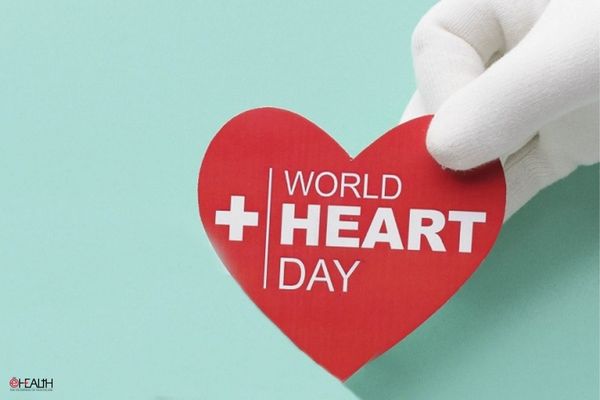Urgent action is needed to stop and reverse the steep rise in heart failure happening across the Middle East and Africa (MEA).
This was the warning issued by a group of regional experts, who collectively outlined the primary gaps in awareness, diagnosis and prevention of heart failure in the region and agreed on a set of recommendations for policymakers to take forward.
Their conclusions have been published in the Journal of the Saudi Heart Association.
The paper highlights that heart failure is associated with significant morbidity and mortality and considerably impacts patients’ quality of life, as well as incurring a substantial economic burden, with a total estimated cost of $1.92 billion.
It notes that the average age a person will develop heart failure in the MEA region is significantly lower than elsewhere: Africa (53 years), Middle East (56.4 years), North Africa (58.79 years), Asia (60 years) and Europe (70 years).
The experts point to risk factors such as diabetes, obesity, smoking and socioeconomic transition, marked by a sedentary lifestyle, lack of physical activity and high consumption of fatty foods, as the main contributors to the higher prevalence of heart failure in the region.
They also agreed that, in certain countries, high prevalence of existing infectious diseases such as tuberculosis shifts the focus and resources from non-communicable diseases like heart failure.
To mark World Heart Day 2022, the paper’s lead authors have today reiterated their recommendations and stressed the ongoing, wide gaps and unmet needs in awareness, prevention, and diagnosis of heart failures in countries across the Middle East and Africa.
“Heart failure is a serious and growing threat to health in the Middle East and Africa, but it does not have to be this way. Policymakers across the region must act now to prioritise heart failure and associated diseases, through better training for health workers, national registries to ensure the collection of quality data and improved access to novel therapies,” said Dr. Ahmed Bennis, Professor of Cardiology, Department of Cardiology in Casablanca, Morocco.
“Whilst local guidelines are available in South Africa (click), too many lives are being cut short in this part of the world due to gaps in how we identify and treat heart failure. This problem also places a huge economic burden on already over-stretched health systems. This paper clearly lays out what needs to be done to avert further suffering. In honour of World Heart Day, we are calling on policymakers to turn words into action,” said Dr. Eric Klug, Professor of Cardiology at the University of the Witwatersrand in South Africa.
“For the first time, experts from across the Middle East and Africa have published a set of region-specific measures to tackle heart failure in efforts to save lives and livelihoods. AstraZeneca is committed to playing our part and supporting health authorities to turn these recommendations into concrete actions,” said Dr. Viraj Rajadhyaksha, Area Medical Director for Middle East and Africa, AstraZeneca.
The paper points to the lack of community-level awareness and a high prevalence of associated conditions such as hypertension and diabetes, compounded by poor accessibility and affordability of healthcare, as major barriers to the prevention of heart failure in the region. It urges policymakers to take the following steps to reverse current trajectories:
- Prioritise heart failure and its associated comorbidities alongside other infectious diseases
- Develop and implement region-specific clinical guidelines on heart failure
- Create local data registries on heart failure
- Train health workers in early identification of high-risk patients
- Improve access to advanced diagnostics and train primary care health workers to use the available technology
- Enhance access and insurance for novel therapies
Latest Stories
-
Gold Fields Ghana Foundation challenges graduates to maximize benefits of community apprenticeship programme
45 mins -
GBC accuses Deputy Information Minister Sylvester Tetteh of demolishing its bungalow illegally
56 mins -
Boost for education as government commissions 80 projects
1 hour -
NAPO commissions library to honour Atta-Mills’ memory
1 hour -
OmniBSIC Bank champions health and wellness with thriving community walk
1 hour -
Kora Wearables unveils Neo: The Ultimate Smartwatch for Ghana’s tech-savvy and health-conscious users
1 hour -
NDC supports Dampare’s ‘no guns at polling stations’ directive
1 hour -
Police officer interdicted after video of assault goes viral
2 hours -
KNUST’s Prof. Reginald Annan named first African recipient of World Cancer Research Fund
2 hours -
George Twum-Barimah-Adu pledges inclusive cabinet with Minority and Majority leaders
3 hours -
Labourer jailed 5 years for inflicting cutlass wounds on businessman
3 hours -
Parliament urged to fast-track passage of Road Traffic Amendment Bill
3 hours -
Mr Daniel Kofi Asante aka Electrician
3 hours -
Minerals Commission, Solidaridad unveils forum to tackle child labour in mining sector
3 hours -
Election 2024: Engagement with security services productive – NDC
3 hours

